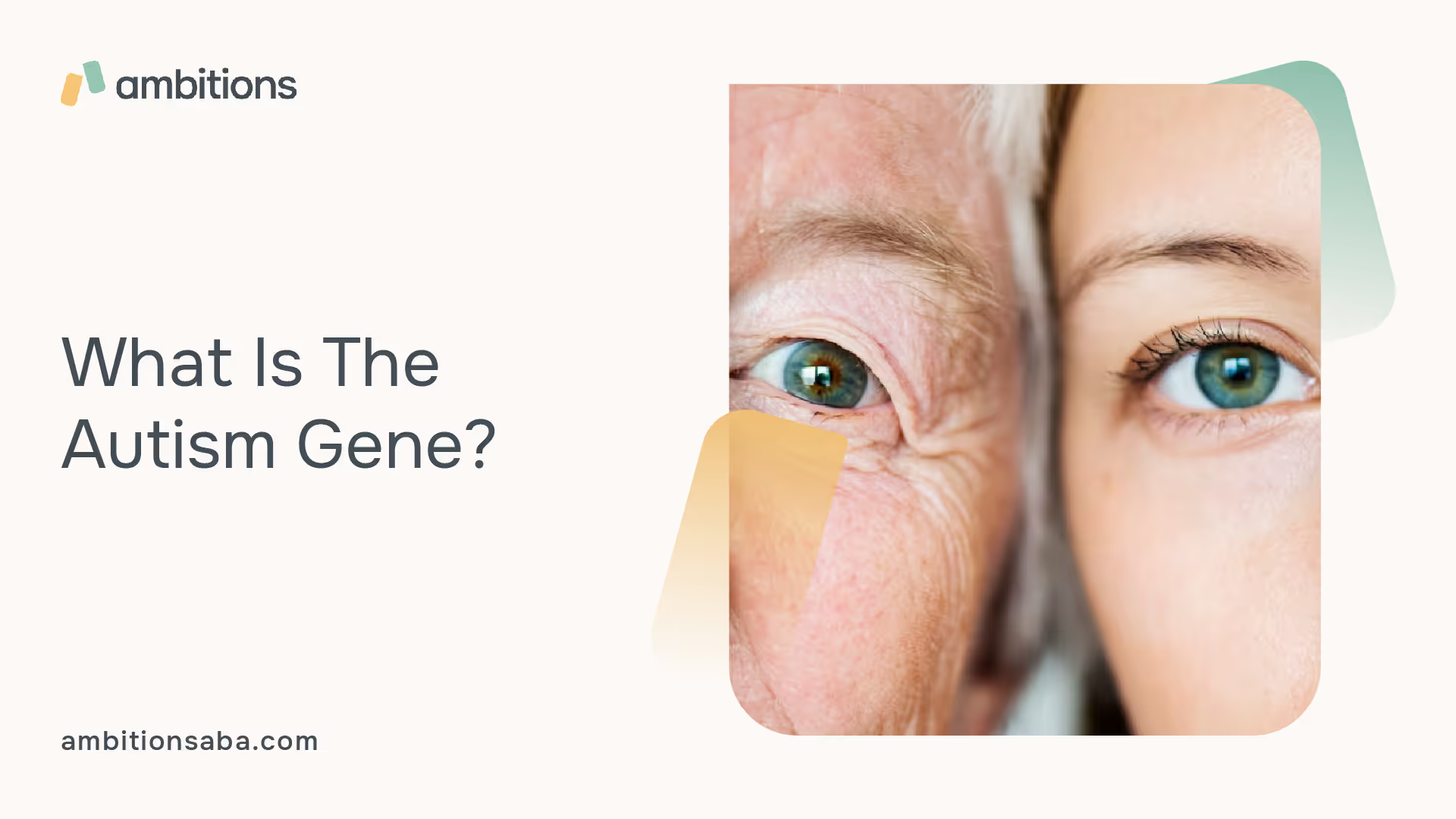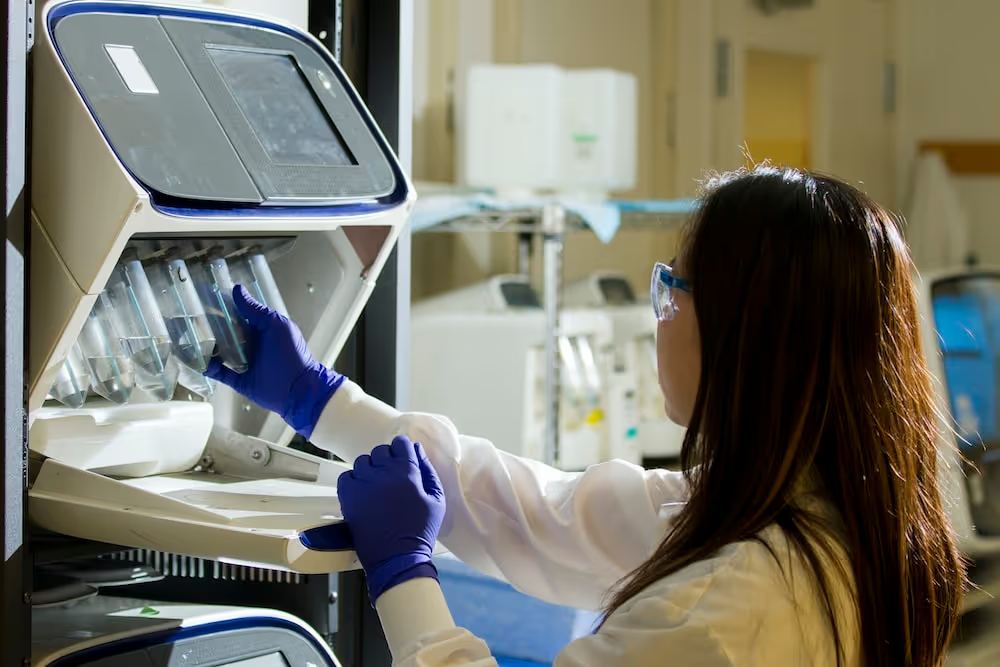Uncover the salaries and career opportunities that await in the world of ABA therapy.
What Is The Autism Gene?

Some genes in which rare mutations are associated with autism, often with other signs and symptoms, are ARID1B, ASH1L, CHD8, CHD2, POGZ, DYRK1A, SHANK3, and SYNGAP1. In most people with autism caused by rare gene mutations, the mutations occur in only a single gene.
While the exact causes of autism are not yet fully understood, research has shown that genetics play a significant role in the development of the disorder. In this article, we will explore one of the most talked-about genetic factors in autism: the autism gene.
First, it's important to understand that there isn't a single "autism gene." Rather, there are many genes that have been identified as potential contributors to the development of autism. These genes are involved in various biological processes, such as brain development and synaptic function.
One of the most well-known genes associated with ASD is the SHANK3 gene.
This gene is located on chromosome 22 and is responsible for producing a protein that helps to form and maintain synapses, which are the connections between neurons in the brain. Mutations in the SHANK3 gene have been linked to a rare form of ASD known as Phelan-McDermid syndrome.
Another gene that has been implicated in autism is the CNTNAP2 gene. This gene is involved in the development of the nervous system and has been linked to language and social communication skills. Variants of the CNTNAP2 gene have been found to be more common in individuals with ASD.
Other genes that have been associated with autism include the NLGN3 and NLGN4 genes, which are involved in the development of synapses, and the MECP2 gene, which plays a role in regulating gene expression.
Not everyone with autism has a mutation in one of these genes, and not everyone with a mutation in one of these genes will necessarily develop autism.
This is because autism is a complex disorder that likely involves a combination of genetic and environmental factors.
Research has also shown that there may be a genetic overlap between autism and other neurological and psychiatric disorders, such as ADHD and schizophrenia. This suggests that there may be common genetic pathways involved in the development of these disorders.
While there is still much to learn about the genetics of autism, research in this area has the potential to lead to new treatments and interventions for individuals with the disorder.
For example, understanding the specific genes involved in ASD could lead to the development of targeted therapies that address the underlying biological processes that contribute to the disorder.
Which Parent Carries The Autism Gene?

Autism was always thought to be passed down through the mother, but recent research is suggesting that the rarer variants associated with the spectrum disorder are mostly inherited from the father.
Autism is a complex disorder that likely involves the interaction of many different genes and environmental factors. In some cases, a child may inherit genetic variants from both parents that contribute to the development of autism.
In other cases, a child may have a spontaneous mutation or deletion in one or more genes that increases their risk for autism.
It's important to note that just because a parent carries a genetic variant associated with autism doesn't necessarily mean their child will develop the disorder. The inheritance patterns of autism are complex and can be influenced by many different factors.
Overall, while genetics do play an important role in the development of autism, it's not accurate to say that one parent carries "the autism gene." Rather, multiple genes and environmental factors likely interact to increase an individual's risk for developing autism.
Who Is Most Likely To Inherit Autism?

While genetics play a significant role in the development of autism, it's important to note that there isn't a single gene responsible for the disorder.
While recent research suggests that rarer variants associated with autism are mostly inherited from the father, many other genetic and environmental factors can also contribute to the development of the disorder.
While genetics can increase an individual's risk for developing autism, environmental factors may play an important role as well.
For example, exposure to certain toxins or infections during pregnancy has been linked to an increased risk for autism.
Overall, the inheritance patterns of autism are complex and multifactorial. While some individuals may inherit genetic variants from their parents that increase their risk for developing autism, many cases of autism are likely due to a combination of genetic and environmental factors.
Limitations and Challenges of Studying the Genetics of Autism
While research into the genetics of autism spectrum disorder (ASD) has made significant progress in recent years, there are still limitations and challenges that make studying this complex disorder difficult.

Firstly, as mentioned earlier, there isn't a single gene responsible for the development of autism. Rather, multiple genes and environmental factors likely interact to increase an individual's risk for developing the disorder. This means that identifying specific genetic variants associated with autism can be challenging.
Additionally, many people with autism have no known family history of the disorder.
This suggests that de novo mutations or other genetic changes may play a role in some cases of autism. Identifying these types of mutations can be difficult because they may not be present in other family members.
Another challenge in studying the genetics of autism is the heterogeneity of the disorder. Individuals with ASD can present with a wide range of symptoms and severity levels, which makes it difficult to identify common genetic factors across all individuals with the disorder.
Finally, while genetics do play an important role in the development of autism, environmental factors also likely contribute to the disorder. Identifying and controlling for these environmental factors can be challenging in research studies.
Despite these challenges, research into the genetics of autism continues to make progress. Advancements in technology have allowed researchers to identify new genetic variants associated with the disorder and better understand how genes interact to contribute to its development.
As our understanding of autism genetics grows, so too does our potential for developing new treatments and interventions for individuals with this complex disorder.
FAQs
How many genes are associated with autism?
There is no single "autism gene." Rather, there are many genes that have been identified as potential contributors to the development of autism. These genes are involved in various biological processes such as brain development and synaptic function.
Can autism be inherited?
Yes, genetics plays a significant role in the development of autism. While not all cases of autism are inherited, research has shown that individuals with a family history of ASD are at a higher risk for developing the disorder.
Is autism passed down through the mother or father?
Recent research suggests that rare variants associated with autism are mostly inherited from the father. However, it's important to understand that there isn't a single gene responsible for the disorder and multiple genes and environmental factors can contribute to its development.
Can genetic testing diagnose autism?
Genetic testing alone cannot diagnose autism. However, genetic testing can identify specific genetic variants associated with an increased risk for developing ASD. This information can be useful in identifying individuals who may benefit from early intervention or targeted therapies.
If one parent carries an autism-related gene variant, will their child definitely develop ASD?
No, inheriting an autism-related gene variant does not necessarily mean that an individual will develop ASD. The inheritance patterns of ASD are complex and influenced by multiple genetic and environmental factors.
Can environmental factors influence the inheritance patterns of ASD?
Yes, while genetics play an important role in the development of ASD, environmental factors such as exposure to toxins or infections during pregnancy can also increase an individual's risk for developing the disorder.
Summary
In conclusion, while there is no single "autism gene," research has identified several genes that play a role in the development of autism. These genes are involved in various biological processes, such as brain development and synaptic function. Understanding the genetics of autism has the potential to lead to new treatments and interventions for individuals with the disorder.

